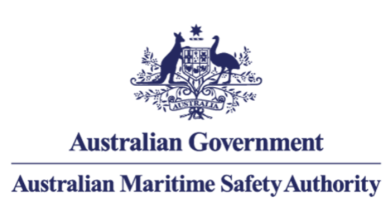
A ruptured hydraulic hose spraying fuel on a hot engine led to a fire aboard Desperado, a towing vessel in Louisiana’s Lake Salvador, the National Transportation Safety Board (NTSB) said Thursday.
The fire broke out in the engine room as the towing vessel Desperado was transiting near Bayou Perot, Louisiana, on 17 February 2023. The three crewmembers aboard could not extinguish the fire with portable extinguishers. So they secured ventilation and fuel to the engine room and evacuated to a good samaritan vessel. Continue reading “NTSB conclude crew’s quick action limits fire damage to towing vessel Desperado”



 The
The 
 The Marine Department of the Hong Kong SAR has urged those within the shipping industry to take heed of lessons learnt following a collision of a vessel with a tugboat in the Suez Canal.
The Marine Department of the Hong Kong SAR has urged those within the shipping industry to take heed of lessons learnt following a collision of a vessel with a tugboat in the Suez Canal.
 The Tokyo MoU has released a Safety Bulletin advising that there have been numerous observations by Port State Control Officers (PCSOs) where the “simulated blackout” testing of the Emergency Generator is demonstrated as fully functional, but during an actual power blackout, the system does not meet the requirements of SOLAS Ch. II-1, Reg. 42 / 43.
The Tokyo MoU has released a Safety Bulletin advising that there have been numerous observations by Port State Control Officers (PCSOs) where the “simulated blackout” testing of the Emergency Generator is demonstrated as fully functional, but during an actual power blackout, the system does not meet the requirements of SOLAS Ch. II-1, Reg. 42 / 43.

 The three Palmerston forts in The Solent off the UK’s south coast are iconic structures known to many, dating back to 1859 when they were built to counter the threat of invasion by the French. For me they are a familiar sight, but I have never had the opportunity to land on these extraordinary structures – only admire them from afar with extreme curiosity.
The three Palmerston forts in The Solent off the UK’s south coast are iconic structures known to many, dating back to 1859 when they were built to counter the threat of invasion by the French. For me they are a familiar sight, but I have never had the opportunity to land on these extraordinary structures – only admire them from afar with extreme curiosity.